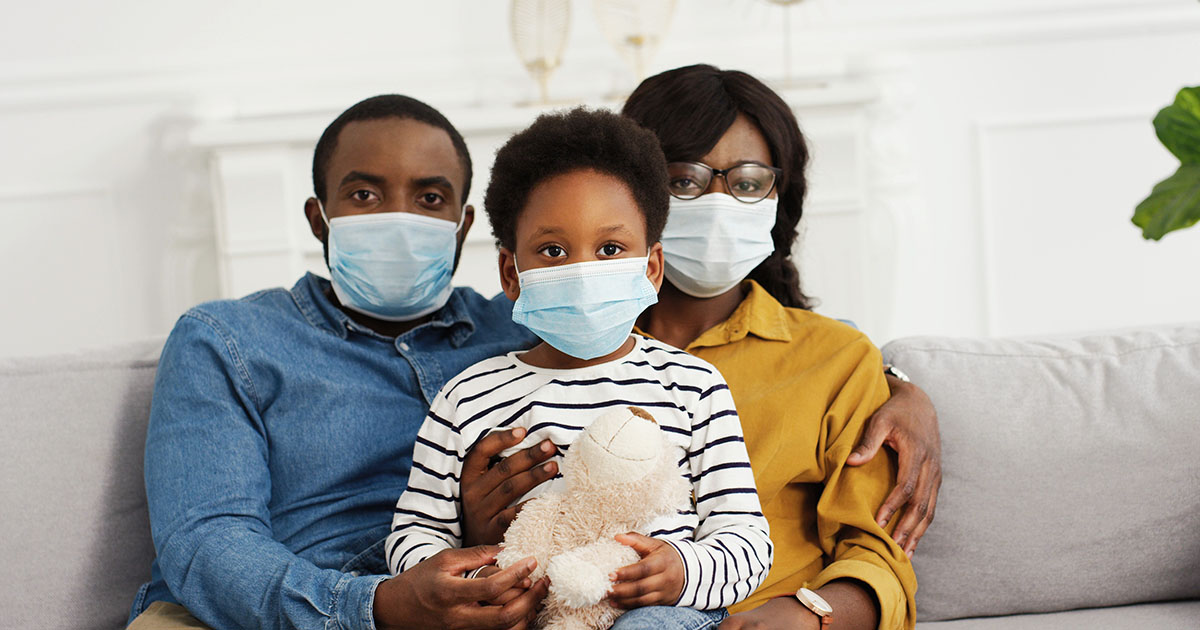“We Live One Day at a Time”
Families’ Stories from the Early Months of the COVID-19 Pandemic

 When the COVID-19 pandemic hit in spring 2020, unemployment rates skyrocketed and families with low incomes acutely felt the financial repercussions. Families with younger children faced additional pressures as schools and childcare providers closed to slow the spread of the virus, increasing demands on parents for caregiving and providing support in their children’s learning.
When the COVID-19 pandemic hit in spring 2020, unemployment rates skyrocketed and families with low incomes acutely felt the financial repercussions. Families with younger children faced additional pressures as schools and childcare providers closed to slow the spread of the virus, increasing demands on parents for caregiving and providing support in their children’s learning.
This brief describes the experiences of nine families with low incomes and their children during the first six months of the COVID-19 pandemic, from March through September 2020. The research team conducted interviews in September 2020 with nine adults from Los Angeles, New York City, and South Central Appalachia, who in 2019 had participated in the larger Childhood and Family Experiences Study.
Key Findings and Highlights
Families experienced a sense of uncertainty and constant, unpredictable change in the early months of the COVID-19 pandemic. As the pandemic evolved, families experienced multiple shifts—losing their jobs, then returning to work; not initially receiving benefits, then receiving them; and schools closing, then reopening virtually, and finally, in some cases, reopening for in-person learning—and the families’ circumstances changed with each development. These changes affected their economic circumstances and emotional well-being.
Economic Circumstances
Families experienced continuing hardships and new material hardships—to some extent—as a result of increased prices of food and household necessities or reduced income.
- Public and private assistance helped them to alleviate those hardships.
- Families’ economic circumstances depended on whether they kept their jobs and if they received the Coronavirus Aid, Relief, and Economic Security (CARES) Act benefits and increased Supplemental Nutrition Assistance Program (SNAP) benefits. Most parents were connected to the safety net before the pandemic, and during this period their continuing access to benefits was crucial for staving off income loss.
- Families’ experiences fluctuated over time, with them having more financial struggles at certain points (for example, when they were out of work) than at others (for example, when they were receiving expanded unemployment insurance).
Emotional Well-being
- Parents were afraid of themselves or their children contracting COVID-19, and as a result, they kept their family inside the home and scaled back family routines outside of the home.
- Parents expressed concerns about the experiences their children were missing out on because of pandemic restrictions.
- Parents noticed changes in their children’s behavior and emotions stemming from the pandemic. Their children were more irritable and seemed sad.
- Parents expressed frustrations with navigating virtual schooling with their children or with their children returning to in-person schooling in the fall of 2020.
- Parents described a few unexpected positive outcomes, including spending extra time with their families and getting to know their children better.
Methods
This study used qualitative research methods to capture and understand families’ experiences during the early months of the COVID-19 pandemic. The research team conducted semistructured, virtual interviews in September 2020 with nine adults from families with low incomes and younger children. The interviews covered topics such as employment, economic circumstances, material hardship, and receipt of governmental assistance and benefits; childcare and schooling; and parents’ and children’s well-being during the pandemic.
The research team sampled the nine families interviewed in this follow-up study from the 31 families who had participated in the Childhood and Family Experiences Study in 2019. The team selected three families from each locality in the original study: Los Angeles, New York City, and South Central Appalachia. Because employment circumstances may affect how families have experienced the COVID-19 pandemic and its economic repercussions, the research team sampled families of various employment statuses in each of these localities, based on the employment status the adults reported in their interviews for the original study.







